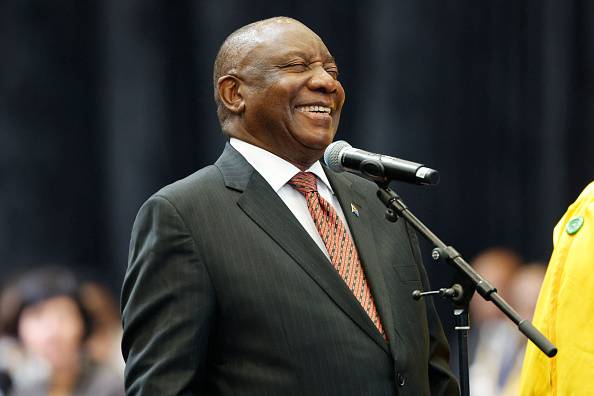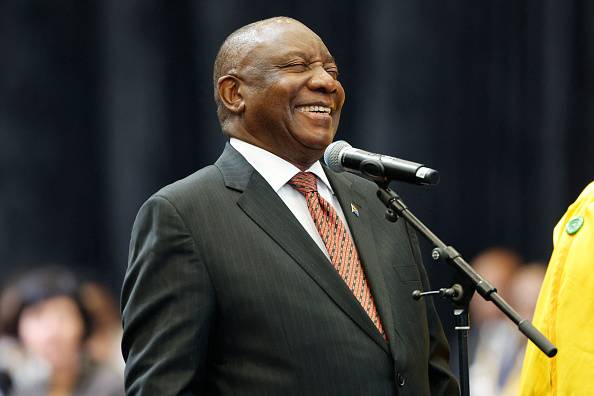
Second term: President Cyril Ramaphosa is re-elected as president. (Photo: WIKUS DE WET / AFP)
Three more parties have joined the Government of National Unity (GNU) since Friday, bringing to 10 the total number of political groups that have signed the agreement, which was made necessary after the ANC lost its majority in last month's general election.
In a statement on Saturday night, the ANC said discussions were ongoing between the parties on the makeup of the executive and that President Cyril Ramaphosa would announce the appointments “in the coming days”.
This comes amid a continuing stalemate between the ANC and the Democratic Alliance over the allocation of ministerial posts in a national unity government, with more parties joining the coalition potentially weakening the DA's negotiating power in seeking more posts.
The ANC confirmed in a statement that the United Democratic Movement (UDM) and Rise Mzansi had signed a letter of intent on Friday that was presented to all parties that received the required number of votes to win seats in the national and local elections on May 29. Al Jama'ah joined them on Saturday.
“Following two weeks of intensive negotiations, 10 of the 18 parties represented in Parliament have signed the GNU Statement of Intent, demonstrating their willingness to work together to put South Africans first,” the ANC said.
“Thus, the first phase of political parties joining the GNU Initiative is over. The parties that make up the GNU won a combined total of more than 70% of the vote in the 2024 elections, ensuring broad representation and a strong mandate to govern.”
The ministry said any further parties wishing to join the unity government would be subject to Article 24 of the statement of intent, which states that their participation will be discussed and agreed between the existing organisations.
Rise Mzansi said it joined the agreement to honour the wishes of South African voters “to be represented by new leadership who are competent, compassionate and ethical”.
As of Sunday there appeared to be no progress in the standoff between the ANC and DA over who should be appointed to cabinet.
The DA argues that, according to paragraph 16 of its letter of intent, the government should “take broadly into account the number of seats each party holds in the National Assembly”. According to DA negotiators, this means that parties should get “approximately 30%” of cabinet posts.
The ANC, on the other hand, maintains that cabinet appointments are the prerogative of the president.
“He will consult with ANC members as always, and this time he will also consult with other parties in the government of national unity, but there will definitely be no quotas,” said a senior ANC official close to the negotiations. Mail & Guardian last week.

